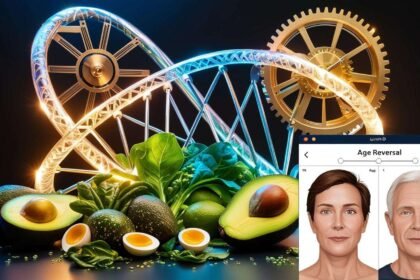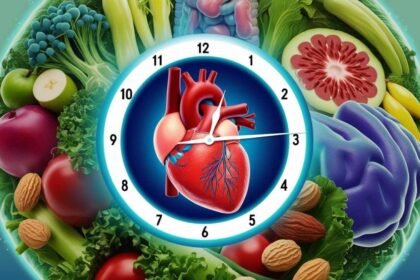Type 2 diabetes has become a growing health concern across the United States, affecting over 38 million Americans. (Source)
Traditionally, medications have been the go-to solution for controlling blood sugar levels, but recent scientific research suggests that it may be possible to manage type 2 diabetes without drugs, especially in its early stages.
While medication is necessary for many people, it’s not the only path. Lifestyle changes, when done correctly and consistently, can offer powerful results in managing and even reversing type 2 diabetes naturally.
In this article, we’ll explore the science behind non-pharmaceutical diabetes management, when lifestyle changes may be effective on their own, and when medications are still needed.
The Truth About Type 2 Diabetes and Medication
Upon diagnosis, many people believe that daily medication is inevitable. However, studies show that type 2 diabetes is largely influenced by lifestyle factors – particularly diet, physical activity, and weight.
This means that for some individuals, especially those diagnosed early, it is possible to manage type 2 diabetes without drugs by adopting targeted lifestyle modifications.
That said, not everyone can or should stop taking medication. The decision depends on factors like how long a person has had diabetes, current blood sugar levels, age, weight, and overall health.
Related: 7 Proven Lifestyle Changes That Can Reverse Type 2 Diabetes Naturally
Key Lifestyle Strategies to Manage Type 2 Diabetes Without Drugs
1. Weight Loss: The Most Impactful Change
One of the most effective ways to manage type 2 diabetes naturally is through sustained weight loss.
Research shows that losing even 5–10% of your total body weight can significantly improve insulin sensitivity and lower blood glucose levels.
A groundbreaking study known as the DiRECT trial (Diabetes Remission Clinical Trial) found that nearly half of participants were able to achieve diabetes remission after following a very low-calorie diet.
Participants who lost at least 10 kg (about 22 pounds) had the highest rates of success – many no longer needed medication to control their blood sugar.
Even small reductions in belly fat can make a huge difference because abdominal fat is closely linked to insulin resistance.
2. Diet: Fueling Your Body for Better Glucose Control
What you eat plays a massive role in how your body handles sugar. Diets high in refined carbohydrates and added sugars lead to sharp spikes in blood sugar levels, whereas whole, nutrient-dense foods support better glucose balance.
To manage type 2 diabetes without drugs, focus on:
- Vegetables: Especially non-starchy ones like spinach, broccoli, and cauliflower
- Lean protein: Chicken, turkey, tofu, legumes
- Healthy fats: Avocados, olive oil, nuts, seeds
- Whole grains: In moderation, such as quinoa, brown rice, and oats
Avoid or drastically limit soda, white bread, sugary snacks, and ultra-processed foods.
3. Physical Activity: A Natural Blood Sugar Stabilizer
Exercise is a powerful tool for lowering blood glucose. When you move your muscles, they use sugar from your bloodstream for energy, helping reduce blood sugar levels without medication.
Experts recommend:
- 150 minutes of moderate-intensity aerobic activity per week, such as brisk walking or cycling
- 2-3 sessions of strength training per week, like resistance bands or bodyweight exercises
Even something as simple as taking a 10–15 minute walk after meals can lead to noticeable improvements in blood sugar levels.
4. Sleep and Stress: Often Overlooked but Crucial
Poor sleep and chronic stress both increase insulin resistance (Source). When the body is stressed, it produces cortisol – a hormone that can raise blood sugar levels. Similarly, sleep deprivation disrupts hormonal balance and glucose metabolism.
To support your goal to manage type 2 diabetes without drugs, aim for:
- 7 to 9 hours of quality sleep each night
- Daily stress-reduction practices like deep breathing, yoga, meditation, or journaling
Making time for mental wellness isn’t just good for your mood – it’s essential for your metabolic health too.
5. Intermittent Fasting: A New Frontier in Diabetes Management
Though still under research, intermittent fasting is showing promise as a strategy to help manage type 2 diabetes without drugs.
The idea is to limit eating to a specific time window during the day, giving your body more time to burn stored sugar and fat.
Some early studies suggest that intermittent fasting may improve insulin sensitivity and reduce fasting blood sugar levels.
However, this approach isn’t suitable for everyone and should always be practiced under medical supervision, especially if you’re already on medication.
When Is Medication Still Necessary?
It’s important to understand that while lifestyle changes are powerful, they aren’t a replacement for medication in every case.
Some individuals have advanced insulin resistance or other health complications that make drug therapy necessary.
Medication may be essential if:
- Your blood sugar is dangerously high
- You have other serious medical conditions
- You’ve had diabetes for many years and your pancreas produces very little insulin
- Lifestyle changes alone aren’t enough to reach target blood glucose levels
The goal is not to “never take medication,” but rather to find the least invasive, most effective combination of tools for long-term blood sugar control.
For many, that may mean reducing dependence on drugs over time with the help of a doctor.
Create an Individualized Plan with Your Healthcare Team
Managing diabetes naturally doesn’t mean going it alone. In fact, the best outcomes come from working with a healthcare provider to create a personalized plan that includes:
- Regular blood sugar monitoring
- Nutrition counseling
- Physical activity recommendations
- Weight loss goals
- Mental health support
Your doctor can help you track your progress, adjust medications as needed, and ensure your efforts to manage type 2 diabetes without drugs are safe and effective.












